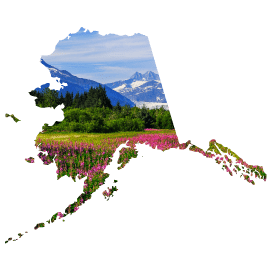Secondary Teacher Preparation in Science:
Alaska
Delivering Well Prepared Teachers Policy
Analysis of Alaska's policies
Secondary science teachers in Alaska have the option of an endorsement in general science. The state does not require content tests for initial licensure; such tests are only mandated once candidates apply for the professional license, usually after three years. At that point, the state requires Praxis II "General Science" content tests. Teachers with this license are not limited to teaching general science but rather can teach any of the topical areas.
Middle school science teachers in Alaska are not required to obtain a specific middle school endorsement, and the state does not require content tests for initial licensure. Alaska also allows middle school science teachers to teach on a generalist K-8 license (see Goal 1-E).
Recommendations for Alaska
Require secondary science teachers to pass tests of content knowledge for each science discipline they intend to teach, as a condition of initial licensure.
States that allow general science certifications—and require only a general content test after up to three years in the classroom—are not ensuring that these secondary teachers possess adequate subject-specific content knowledge. Alaska's required assessment combines all subject areas (e.g., biology, chemistry, physics) and does not report separate scores for each subject area. Therefore, candidates could answer many—perhaps all—chemistry questions, for example, incorrectly, yet still be licensed to teach chemistry to high school students.
Require middle school science teachers to pass a test of content knowledge that ensures sufficient knowledge of science, as a condition of initial licensure.
A general subject-matter test that combines literature/language arts, mathematics, history/social studies and science—without reporting separate scores for each subject area—does not ensure that middle school science teachers possess adequate knowledge of science, as it may be possible to answer many—perhaps all—science questions incorrectly and still pass the test.
State response to our analysis
Alaska recognized the factual accuracy of this analysis.
Select another topic
Delivering Well Prepared Teachers
- Admission into Preparation Programs
- Elementary Teacher Preparation
- Elementary Teacher Preparation in Reading Instruction
- Elementary Teacher Preparation in Mathematics
- Middle School Teacher Preparation
- Secondary Teacher Preparation
- Secondary Teacher Preparation in Science
- Secondary Teacher Preparation in Social Studies
- Special Education Teacher Preparation
- Assessing Professional Knowledge
- Student Teaching
- Teacher Preparation Program Accountability
Expanding the Pool of Teachers
Identifying Effective Teachers
- State Data Systems
- Evaluation of Effectiveness
- Frequency of Evaluations
- Tenure
- Licensure Advancement
- Equitable Distribution

